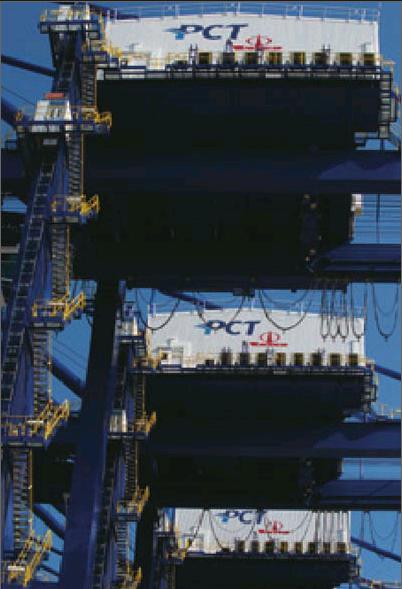A European Investment Boom?
2015-08-18ByBaiShi
By+Bai+Shi

At present, Chinese investment in Europe is entering a period of rapid growth. China and the European Union (EU) are discussing how to dock their strategic economic development and investment plans together, Shen Danyang, spokesperson of Chinas Ministry of Commerce, said at a press briefing in Beijing on July 7.
At the China-EU summit in Brussels in late June, Chinese Premier Li Keqiang and President of the European Commission Jean-Claude Juncker agreed to align their development strategies, namely, the Chinaproposed Silk Road Economic Belt and the 21st-Century Maritime Silk Road (the Belt and Road Initiative) and the EUs Investment Plan, also known as the Juncker Plan.
The Belt and Road Initiative, which aims to promote common economic development along the ancient Silk Road, have been embraced by many countries since it was proposed by Chinese President Xi Jinping in 2013. Likewise, under the Juncker Plan, the EU will mobilize at least 315 billion euros($345 billion) from public and private sources of finance over the next three years (2015-17) to expand European economic growth and boost employment.
Shen said that Chinese investment has targeted a wide range of areas across the EU market, including machinery, automobile, property, shipping, telecom, energy and finance. For the foreseeable future at least, the outlook for China-EU cooperation is promising.
The major EU economies, Britain, France, Germany and Italy, have joined the Chinaproposed Asian Infrastructure Investment Bank, which is part of the Road and Belt Initiative, as founding members and in turn, the EU has welcomed Chinas participation in the Juncker Plan.
During Premier Lis visit to Brussels, financial bodies from both regions inked a number of agreements, including those related to the currency exchange mechanism of 700 billion yuan ($114.19 billion) and improving conditions for RMB Qualified Foreign Institutional Investors. This will facilitate trade and economic cooperation between China and the EU, Shen said.
“The Belt and Road Initiative is highly complementary to the EUs investment plan. The docking of the two plans can offer new opportunities for closer China-EU cooperation,” Gai Lin, Secretary General of the EUChina Friendship Group of the European Parliament, said to Beijing-based Economic Information Daily.
Over the past few decades, China and the EU have maintained sound relations and robust trade growth. The two sides have been each others largest trading partners for some time. Furthermore, China and the EU are mutually complementary in terms of economic structure, with the EU possessing advantages in production and technology, while China has huge potential in terms of human resources and its burgeoning market, Gai said.
At present, Europe needs foreign investment to finance its small and mediumsized businesses and to boost its real economy, including areas such as infrastructure, information technology, and clean energy. In the China-proposed Belt and Road Initiative, China calls for close cooperation on fields above, which meet the goals of the EU, Gai said.
Moves
Against this backdrop, according to Shen, from January to May this year, Chinas nonfinancial investment in the EU reached $4.21 billion. The growth rate is as high as 367.8 percent year on year.
Feng Lin, founder and CEO of DealGlobe, a transnational business service provider for investors and sellers, told China Securities Journal that Europeans have become increasingly interested in China, “In the past, European entrepreneurs looked for business opportunities in China. Now, however, they wish for Chinese companies to invest in Europe,” Feng said.
Feng worked for a private investment fund and an association of Chinese financers in London before. Given his experience, he is only too aware of the investment needs of Chinese investors and the business opportunities present in the EU market.
Recognizing the enormous potential, Feng last year resigned from his well-paying job and co-founded DealGlobe, which has set up offices in both Beijing and London. The company is intended to act as a bridge for Chinese and European entrepreneurs who are in the game of seeking investment business.
Fengs confidence in the company is validated by statistics. According to data from Rhodium Group, an international market research firm, Chinas foreign direct investment (FDI) in Europe hit $18 billion in 2014, double the number in 2013. Chinese enterprises participated in a total of 153 deals in Europe in 2014. In the last four years, Chinas annual FDI to Europe was $10 billion with Western Europe being their favorite destination.
Around the world, Chinese enterprises have been investing much more in Europe than any other developed economies. Last year, the number of acquisition deals conducted by Chinese enterprises in Europe drew near to the sum of those taking place in the United States, Australia and Canada.
“One of the major reasons is the EU economic downturn and depreciation of their assets,” said Zhang Lizhou, General Manager of the Investment Banking Department of China Minsheng Bank, in an interview with China Securities Journal.
“Meanwhile, many Chinese enterprises need to upgrade their industries and expand their business abroad. They are very interested in famous brands with solid assets, advanced technologies and large market shares in developed economies,” Zhang said.
Whats more, “Chinese companies have encountered difficulties when seeking to acquire local companies in the United States in recent years, but the European market is relatively amenable to Chinese capital,” Zhang said.
Investing in technologies is a strategic centerpiece for many Chinese companies going abroad. In 2014, Chinese companies set up a total of 16 sales centers, seven facilities for research and development, six distribution bases and five headquarters in the EU.
Last year, Yili Group, one of Chinas largest dairy producers, established a R&D center in association with Wageningen University in the Netherlands, the first of its kind for a Chinese dairy company.
“To become a global diary giant, the EU market will play a key role in Yilis research and development strategy,” Pan Gang, President of Yili Group, said at the opening ceremony for the research center on February 25, 2014.
By and large, both governments and business leaders in EU countries have welcomed Chinese investment. In January, French Prime Minister Manuel Valls led a business delegation comprising over 50 French business leaders to China. During his visit, the prime minister stated that his country wishes to attract more Chinese investment.
Chinese investment has been particularly welcomed in Italy. Over the past year, four major Chinese enterprises had invested near 10 billion euro ($10.97 billion) in the country. In late December last year, Shanghai Electric Power Co. Ltd. announced its decision to buy a number of power plants and energy facilities in Italy and Italian Prime Minister Matteo Renzi even attended the signing ceremony for the deal.
Ding Chun, a European studies researcher at Fudan University told Global Times that assets in European countries have been accorded low valuations in recent years.
The EU needs to shake off its economic malaise and foreign investment may prove the remedy. Therefore, China increasing investment in Europe is not only building market momentum, but is also a phenomenon that benefits both sides.
Concerns
While Chinese investments boost local economies, some have met with opposition or even panic from some Europeans. For example, the news that Chinese investors intended to buy Club Med, a global chain of resorts, and acquire shares in Airport Toulouse in France, aroused concerns among French media, who feared the acquisition would lead to loss of assets and job cuts.
In March, Sinochem, Chinas largest chemical production giant, paid 7.1 billion euro ($7.7 billion) for 26 percent of Pirelli, the worlds fifth largest tire producer. The news caused a sensation in Italian media outlets which argued that the Chinese bought the pride of Italian industry. In fact, the price offered by Sinochem was much higher than the actual value of the shares, given the downward spiral of the EU economy.
Furthermore, the merging of Sinochem and Pirelli will make the resulting entity the worlds fourth largest tire producer and help to expand Pirellis business in Asian market.
In spite of those acquisitions, unforeseeable challenges lie in wait for Chinese investors to overcome after they have bought European brands or assets.
Cases of failed Chinese investment in Europe are not uncommon. Risks perennially hide behind opportunities. The legal systems and business environments in the EU countries are vastly different from those in China. Chinese investors should be aware of the difficulties and potential risks before they bid for targets.
